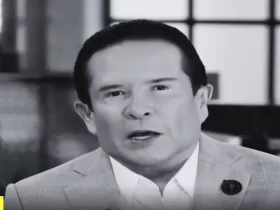Hello, Teresa. I know you’re at a point in your life where you’ve already traveled many paths, overcome challenges, and accumulated wisdom. I also know that you’re now thinking about the future of those you love. That silent worry that accompanies you every time you ask yourself, «What if something happens to me tomorrow?» Life insurance isn’t a luxury. It’s a gesture of love, a show of responsibility that speaks to how much you care about the stability of your family. But I understand: insurance can seem cold, complicated, and, above all, expensive. Today I want to walk you through it step by step so you can discover that it is possible to find the cheapest life insurance, even if you’re over 60.
Key findings
- Yes, you can get affordable insurance after 60 if you act calmly.
- Understanding what you need prevents you from paying for things you don’t need.
- Comparing options gives you power and better conditions.
- Having a medical condition is not the end of the road.
- The cheapest is what protects you without surprises or pressure.
When numbers don’t always reflect your worth
After 60, many insurance companies start scrutinizing you. They analyze you with statistics that say you’re more at risk just because you’re older. It’s cruel, because they have no idea how active you are, how disciplined you are, your healthy lifestyle, or how hard you work to maintain your health. However, insurers look at percentages, tables, medical records, and ages. And yes, Teresa, that influences the price.
Many people find it unfair that just when they most need to protect their families, insurance costs are rising, as if life no longer had the same value. But the important thing here is that, although the rules change with age, that doesn’t mean there aren’t real options. You just have to know how to look for them, understand them, and not get carried away by the first quote that comes along.
The moment when protecting your family becomes urgent
Maybe when you were 40 or 50, you thought there was time. That insurance could wait. That maybe it wasn’t necessary. But now, Teresa, everything changes. Maybe you already have grandchildren. Or perhaps you’ve seen how an unexpected absence from your life has left voids that are difficult to fill. It’s not just the pain of losing someone. It’s what’s left afterward. The bills, the mortgage, the medical expenses, the urgent decisions that must be made amidst the confusion.
That’s what you want to avoid. You want the people you love to avoid having to face financial chaos one day. And that’s where insurance becomes a silent tool, one that doesn’t prevent the pain, but it does ease the burden. You’re not buying a piece of paper. You’re buying peace of mind for others.
How prices are calculated and why it matters
Insurance companies don’t just randomly throw out numbers. They calculate the price of a policy based on the risk posed by insuring a person. The older they are, the greater the chance of death, according to their statistics. Added to this is your health status, your medical history, whether you smoke, whether you have high blood pressure, and whether you take medication. All of this is converted into a figure that determines how much you should pay each month.
But that doesn’t mean all companies think alike or charge the same. Some use older models, others have programs designed for older adults. Some require medical exams, others don’t. The key is to compare calmly, without rushing, without fear, and understanding that you have the right to ask and choose.
What type of insurance suits you according to your reality
There are two main types of life insurance: term insurance and permanent insurance. Term insurance covers a specific period, such as 10 or 20 years. If you die within that time, your family receives the agreed-upon money. If not, the contract expires. Permanent insurance, on the other hand, lasts your entire life, as long as you pay the premiums.
Teresa, if you’re looking for something affordable, term insurance is probably your best option. It’s cheaper, easier to purchase, and does the essential job: providing a backup if something happens to you in the coming years. But if you prefer to have something guaranteed until the end and can afford slightly higher premiums, permanent insurance may give you more peace of mind.
What data do you need to have on hand before searching?
Often, the problem isn’t finding a good insurance plan, but rather being prepared to quote. They’ll ask for your exact age, your weight, your height, whether you take medication, whether you smoke or have smoked in recent years. They’ll also want to know if you have any serious medical history. All of that plays a role.
Having this information ready saves you time and helps you receive quotes that are more tailored to your needs. You can also speak with an agent who has experience with people your age. There are professionals who know how to present your profile so you don’t get overcharged and so you can take advantage of discounts that often aren’t advertised.
How to compare without falling into traps
One of the most painful situations is when a person signs a contract thinking they have everything covered, and then, when an emergency occurs, they discover the fine print said something else. That’s why, Teresa, every time you receive a quote, be sure to ask exactly what it covers. Don’t settle for phrases like «full coverage» or «standard package.» Ask for details. Ask for examples. Ask for clarity.
It’s also important to know what will happen if you ever can’t pay a fee. Some policies give you a grace period. Others cancel the contract immediately. Ask this before signing. You need flexibility, not a commitment that becomes a burden.
The insurers that understand your stage of life
Although it may seem like everything is against those over 60, the truth is that many companies have begun to design specific insurance policies for this stage. Some insurers work exclusively with older adults, and others offer simplified plans, without medical exams, with moderate coverage amounts that are sufficient to cover funeral expenses and basic debts.
These insurance policies can cost less than you imagine. And the most important thing is that they’re designed for you. You don’t have to adapt to them. They adapt to you. And that changes everything.
How to avoid falling into the wrong hands
Teresa, there are people who take advantage of fear and urgency. They sell fake policies, inflate prices, or make promises they don’t keep. Therefore, make sure the company you talk to is registered, has a verifiable reputation, and gives you all the information in writing.
If you ever feel pressure to sign quickly, get out of there. Insurance is an important decision. No one has the right to rush you. Transparency and respect are signs that you’re dealing with someone serious. And if you’ve already had a bad experience, don’t give up. There are real, honest, and affordable options. You just need to find the right one for you.
What to do if you have an illness or medical condition
Many people believe that if they are already sick or have a pre-existing condition, they cannot be insured. But that’s not always true. There are policies designed for people with controlled conditions. Some don’t require exams, and others only ask you a few basic questions. Sure, the price may be a little higher, but it’s still an option.
The most important thing is to be honest. Don’t hide information. Don’t lie on your medical form. Because if you do, and then something happens, the insurance company could refuse to pay. And that would be the worst. It’s better to pay a little more, but rest assured that you’re fully protected.
When is the best time to decide?
The answer is clear: today. Because with each passing day, conditions can change. Your health can change. Fees can go up. And what is an accessible possibility today may be more difficult tomorrow. It’s not about being afraid. It’s about understanding that every day counts. And that making clear decisions today gives you peace of mind tomorrow.
Teresa, you’re not buying a piece of paper. You’re buying mental respite. You’re buying the possibility that, if you’re not around one day, your family will have the time and space to say goodbye without worrying about the expense.
My Opinion
Truly affordable insurance is the one that protects you without scams, the one you can afford without losing your life, the one that does its job without surprises. It may not be the one on TV or the one that appears first on the internet. But it’s there, waiting for you. You just need to search calmly, read carefully, and decide with your heart and your head.
You’re not alone in this quest. There are agents who listen to you, families who’ve been through it, and solutions that work. You just need to take the first step.






























